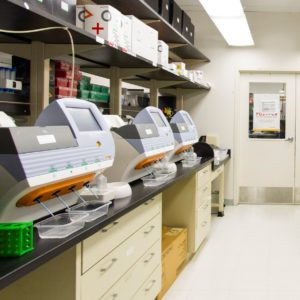
NET Research: Temporary Delays due to COVID
NETRF’s Director of Research John Kanki, PhD, provides an update on the status of ongoing NETRF-funded research studies during COVID-19.
Make a gift before the end of the year to drive research breakthroughs in 2026.

NETRF’s Director of Research John Kanki, PhD, provides an update on the status of ongoing NETRF-funded research studies during COVID-19.
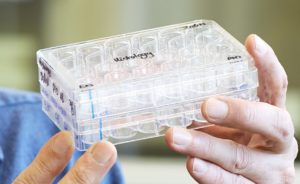
NETRF-funded research of miniature replicas of human organs is recognized with a Presidential Award for Basic Science at ENETS, a leading international meeting of NET scientists.

NETRF reports progress in the development of neuroendocrine tumor cell lines to help eliminate a decades-old obstacle in laboratory research. To stimulate progress in NET cell lines, NETRF established a Cell Line Prize, funded cell line research, and launched a collaboration with a nationally known research institute. Each of these initiatives has succeeded in establishing NET cell lines.

NETRF welcomes five new members to its Board of Scientific Advisors, a volunteer council of highly distinguished medical and research leaders who share NETRF’s commitment to advancing the diagnosis and treatment of neuroendocrine cancer.

Research to Advance Neuroendocrine Tumor Treatment The Neuroendocrine Tumor Research Foundation (NETRF) today announced $3.5 million in neuroendocrine tumor (NET) research grants to fund 12

A NETRF-funded clinical trial looks at a cancer vaccine called SurVaxM in neuroendocrine cancer to help slow or stop the spread of neuroendocrine tumors.
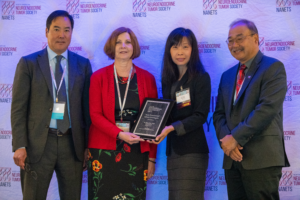
Highlights from NANETS 2019 symposium where leading NET experts presented progress and identified priorities for moving NET knowledge and care forward.

New grant explores precision drug delivery in NETs The American Association of Cancer Researchers (AACR) has awarded a NETRF-funded research grant to a Texas researcher
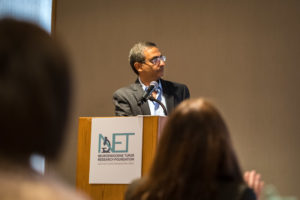
NETRF-funded researchers identified a cancer cell type that is associated with non-functional pancreatic neuroendocrine tumor (pNET) recurrence. Alpha-like pNET cell expression of the protein ARX can guide prognosis.
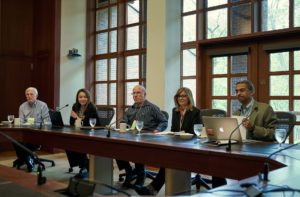
NETRF’s Board of Scientific Advisors and external reviewers will begin reading and ranking the 2019 requests for research funding. Wide Range of Requests for NET